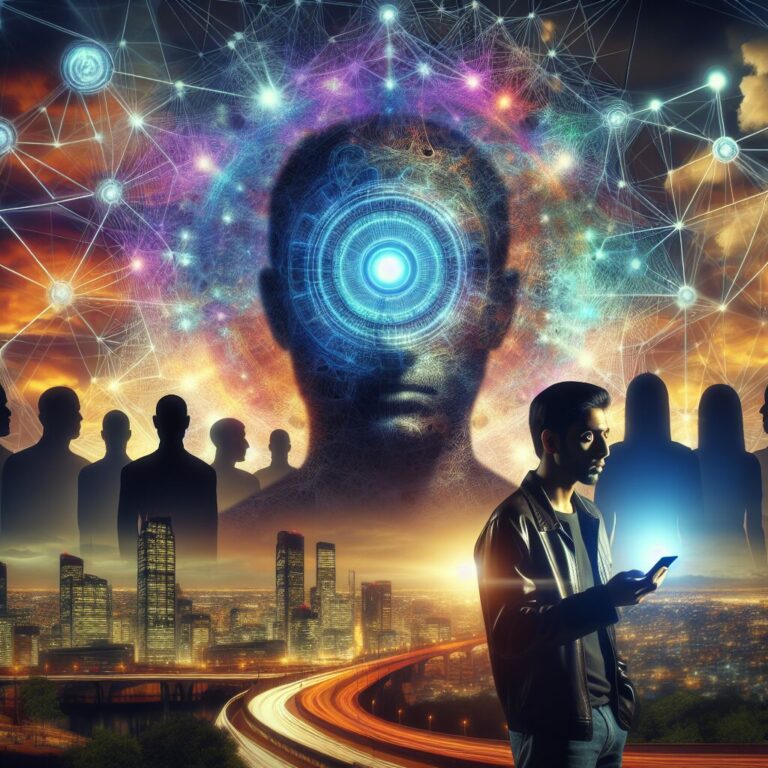By: Nangyal (HIRE ME)
The Future of Brain-Computer Interface
We’ve all seen sci-fi movies where characters connect their brains directly to computers, allowing them to control machines, access vast amounts of data, or even upload their consciousness to virtual worlds. Well, the reality is catching up fast. Brain-computer interfaces (BCIs) are no longer the stuff of fiction — they’re becoming a real technological breakthrough, and it could change everything about how we experience reality. Imagine controlling devices, computers, or even entire cities, just by thinking about it. This is no longer a distant dream; it’s something that could be in your future.
Mind Control: A Step Closer Than You Think
What if the next step in human evolution isn’t physical, but technological? BCIs are rapidly advancing, with companies like Neuralink leading the way, hoping to create seamless communication between the human brain and digital devices. While this might sound like a simple ‘mind-controlled’ gadget, the potential is much greater. These technologies could allow people with physical disabilities to regain motor functions, help researchers unlock the mysteries of the brain, and even give humans the ability to access information or communicate telepathically. Imagine being able to think something, and have it happen instantly — without lifting a finger.
Uploading Consciousness: The Next Evolution or a Digital Trap?
One of the most controversial and intriguing ideas in the world of BCIs is the concept of uploading human consciousness to a digital format. The idea is that with advanced technology, we could digitize our thoughts, memories, and personalities, effectively making ourselves immortal in a virtual world. But is this the next step in human evolution, or is it a digital prison? Would you want to live forever as a set of data, or would you lose something essential in the process? Philosophers and scientists are already debating whether such a “mind-uploading” process would truly preserve your identity, or simply create a digital copy of you that lacks the essence of your consciousness.
A New Era of Augmented Reality: The World Through Digital Lenses
Now, let’s talk about augmented reality (AR) and how it’s transforming our daily lives. Think about it: we’re already in an era where smartphones let us see digital information overlaid on the real world, but AR is about to make it much more immersive. Soon, we won’t need screens to interact with digital content — it will be projected directly into our environment through glasses, contact lenses, or even implanted into our eyes. The potential is massive: imagine being able to walk through the streets and receive real-time translations of street signs or have virtual assistants interact with you directly in your field of vision. The boundaries between the physical world and the digital realm will blur, creating a world that’s constantly augmented by data.
Hacking the Brain: A New Frontier for Cybersecurity
As we move into a world where our brains are directly connected to digital systems, we’re also opening up a new realm of cybersecurity threats. The more integrated our brains become with the digital world, the more vulnerable we are to cyber attacks. What if hackers could breach your mind directly, manipulating your thoughts, memories, or even your perceptions of reality? This could lead to new types of crimes, like digital brain manipulation or memory theft. It’s a whole new type of digital warfare — not one fought with viruses and firewalls, but with mental manipulation. The risks are very real, and we’ll need to rethink our entire approach to privacy and security in a world where our minds are digital playgrounds.
The Ultimate Fusion: Human and Machine as One
Looking further into the future, some believe that BCIs could evolve into a full merging of humans and machines. With technology embedded directly in our brains, we could not only control devices but merge with them. Our minds could access the entire internet in an instant, or even control robotic bodies to extend our presence beyond the biological limitations of the human body. This fusion between human consciousness and technology could lead to new heights of intelligence and capability, but it could also lead to a loss of humanity. Could we maintain our sense of self in a world where human minds and digital systems are indistinguishable? Or would the integration of these two entities lead to a new species altogether?








